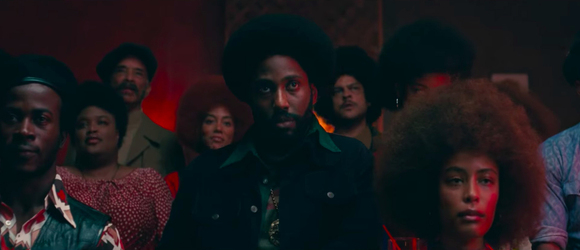Review: "A Star Is Born"
Alright, let’s get this out of the way. Ranking all things A Star Is Born…
The films: 1954 > 2018 > 1937 > 1976
The leading men: James Mason > Fredric March > Bradley Cooper > Kris Kristofferson
And, of course, the leading ladies: Judy Garland > Lady Gaga > Janet Gaynor > Barbra Streisand
Indeed, Cooper’s A Star Is Born does not reach the sky-high heights of George Cukor’s dazzling 1954 production - then again, what does? It is still a damn fine picture, especially remarkable a feat, given it marks both Cooper’s directorial debut and Gaga’s first stab at headlining a film as an actress. If the picture is ultimately an imperfect one, the richness of their efforts cannot be denied.
The film opens on Cooper’s Jackson Maine, a hard-drinking country star whose love for the bottle draws him one evening into a drag bar. There, he becomes enraptured by Gaga’s Ally, an aspiring singer who, despite her killer voice, is on the verge of giving up on her dreams. Initially resistant to his advances, Ally eventually tags along and, at one of Jackson’s concerts, has the chance to belt out a tune she’s recently composed.
Ally emerges something of an oversight sensation, the clip of her performance going viral. She becomes Jackson’s partner on the road but it is inevitable the prospect of a solo career will rear its head. Such comes to fruition through music producer Rez (Rafi Gavron) who, to some chagrin from both Ally and Jackson, is determined to reinvent Ally as an extravagant (and frankly, far less appealing) pop superstar. As her fame rises, as is the case in all A Star Is Born pictures, his addictions worsen, testing the relationship of these two soulmates.
A Star Is Born is at its most absorbing in the early-going, with Gaga something of a legit revelation. Film buffs will inevitably compare her turn to the likes of Garland and Gaynor, as I admittedly already have, but the performance it actually most reminds me of is Courtney Love’s in The People vs. Larry Flynt - an unaffected, lived-in, completely compelling effort from a musician mostly untested as an actress. Gaga’s rapport with Cooper is stirring and heartfelt, their chemistry as potent on stage as it is in the film’s quieter moments.
If Gaga soars and shimmers early on, the rest of the proceedings, while entertaining enough, don’t quite live up to the stunning promise of the opening hour. As Ally transforms into a pop A-lister, guesting on Saturday Night Live and bringing aboard a pack of back-up dancers, and Jackson further succumbs to his demons, the intimacy of their dynamic, so essential to the film’s success, somewhat fades. On reflection, nearly all of the film’s best and most affecting scenes arrive in the first half. That isn’t to say the latter half is bad - it’s just decidedly inferior.
Beyond Cooper and Gaga, both Sam Elliott (as Jackson’s exasperated brother and manager) and Andrew Dice Clay (as Ally’s father) leave lasting impressions. The original songs, in several cases written and/or produced by its stars, are splendid and the picture also happens to be gorgeously shot, with photography by the great Matthew Libatique.
Garland’s remains the ultimate A Star Is Born but I have to admit, Gaga’s isn’t terribly far behind.
A-





